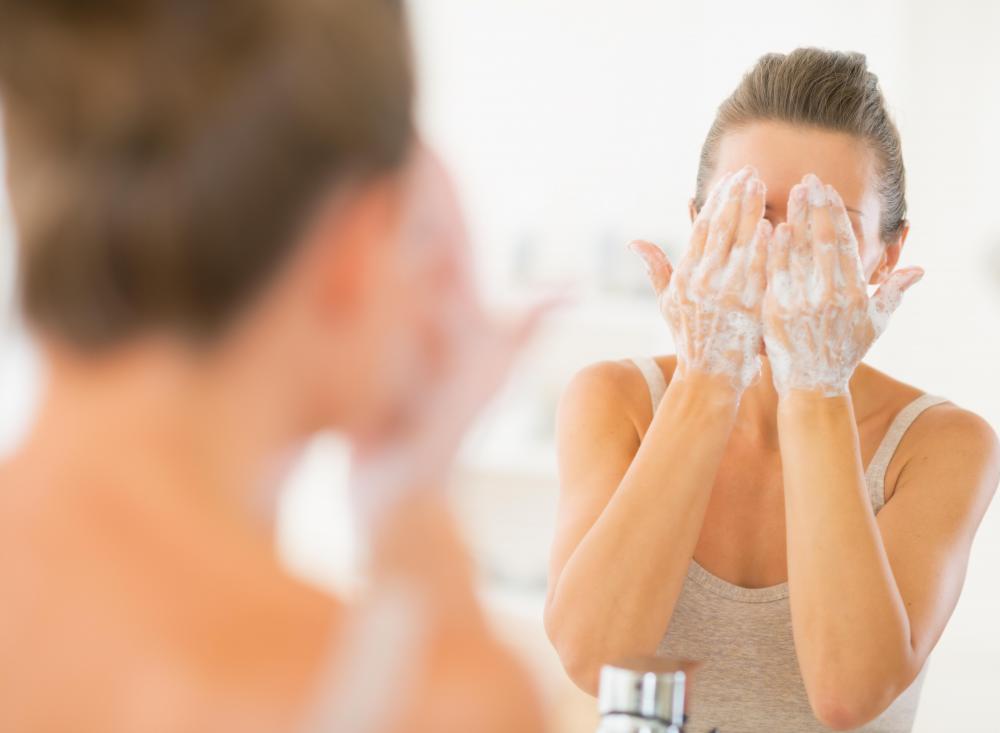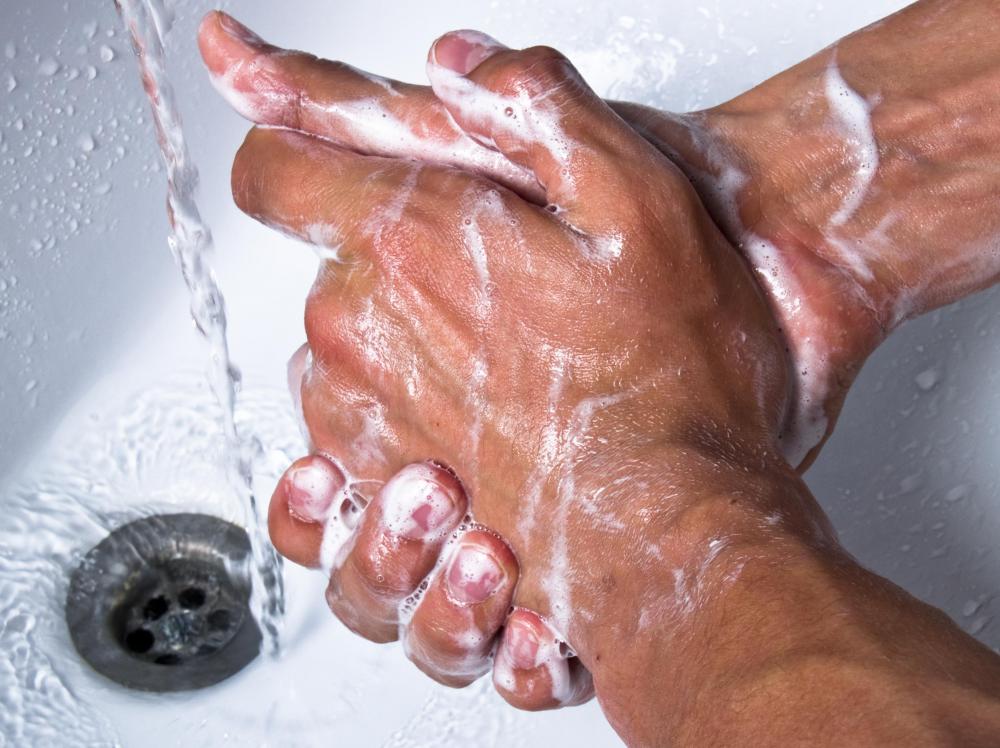At WiseGEEK, we're committed to delivering accurate, trustworthy information. Our expert-authored content is rigorously fact-checked and sourced from credible authorities. Discover how we uphold the highest standards in providing you with reliable knowledge.
What is Triclosan?
Triclosan is the primary active ingredient in many antibacterial and antifungal products we all use on a regular basis. It is an organic compound that is a biocide, bacteriostatic and is not highly soluble in water. Triclosan is produced by partially oxidizing benzene or benzoic acid using the Raschig or cumene process. It has become popular as an additive to hand soap, face wash, toothpaste, and is used in Microban® products such as utensils, clothing and toys. The compound is also used in higher concentrations (2%) as treatment for people with methicillin resistant Staphylococcus aureaus (MRSA).
Triclosan degrades very slowly, and has been found in decades old sludge at the bottom of lakes as well as in sewage. In fact, it is one of the most detected elements in wastewater, and affects algae growth. Because it degrades slowly, and is not highly soluble in water, its effectiveness in hand soap is due to the fact that it stays on the hands and continues to kill bacteria even after they have been rinsed and dried. According to some studies, products that contain triclosan kill up to 99.6% of germs.

While parents, teachers and doctors everywhere surely love the benefits of triclosan due to its effectiveness in killing unwanted germs, it does have its detractors. Critics of antibacterial products, and specifically, triclosan, claim that its overuse will result in the development of resistant bacteria. Current studies do dispute this claim, and there is no definitive evidence the compound is to blame for any resistant bacteria.

Another criticism is that the compound may be carcinogenic. According to studies, it interacts with the chlorine in tap water to produce chloroform gas, which is a carcinogen. This effect is exacerbated by sunlight. The Environmental Protection Agency (EPA) claims it possibly has dioxins, which are carcinogenic. In fact, the Virginia Polytechnic Institute found that when a dishwashing soap was combined with tap water, it did create chlorinated dioxins. Another study shows that triclosan is excreted in human breastmilk, and is an endocrine disruptor in animal subjects.

Currently, triclosan is used in approximately 75% of liquid soap products. Many manufacturers, heeding the criticism of opponents of the compound, are phasing the ingredient out of their products. This may also be due in part to studies that have shown that plain old soap, coupled with proper hand washing techniques, can be just as effective in combating the daily germs you come in contact with.
AS FEATURED ON:
AS FEATURED ON:














Discussion Comments
@anon319275, Post 7: I have had a great problem with acne and tried a lot of face wash products but nothing worked until I came across a website that suggested using baking soda and water mixed into a paste. I used this as a face wash and I have never had any trouble with acne again. It is cheap, natural and is very alkaline, which helps to inhibit bacteria growth.
As a 55 year old woman who has (and still does) suffer from cystic acne, a mild non-soap wash containing Triclosan does work in improving my skin. Other products, with salicilates, benzoil peroxide, etc. either do not work or are too harsh for my old skin.
I also have a problem with the smells of products and this soap does not give me problems. So instead of taking things to the extreme as we always do, let's not ban Triclosan. Let's just take it out of the products that are not specifically targeting a specific illness or issues. As usual, this is a case of if "some is good, more must be better."
A group of scientists have stated that triclosan might be culpable for enlarged prostate in men.
It has been widely proved that triclosan accumulates in fatty acid tissues of the body, causing damage to the cells in the body. Also, it has been proven that many triclosan-resistant bacteria exist. Check it out.
I believe it is responsible for the skin tags under my arms I wish I could find out when. The product I use (brut) first introduced this chemical.
Does Triclosan "know" not to kill "healthy" beneficial bacteria needed by the human body to function properly?
What about Triclosan in toothpaste that MUST get ingested internally/ Wouldn't that kill Healthy/needed intestinal bacteria, thus having an adverse effect on human health? Notice the part that says that it keeps working-even after the skin is dry!
This Big Pharma over hype of Drug dependence over nature's designed immune responses is based upon profits placed over Health. Don't buy into it. This is exactly why we see a re-emergence of resistant bacteria caused disease. The overuse of antibacterials will Triclosan in everything now is much like the curse of using artificial sweeteners. It has proven worse than trusting nature!
Triclosan was causing terrible dermatitis on my hands which has never returned once I went back to natural soap!
Post your comments